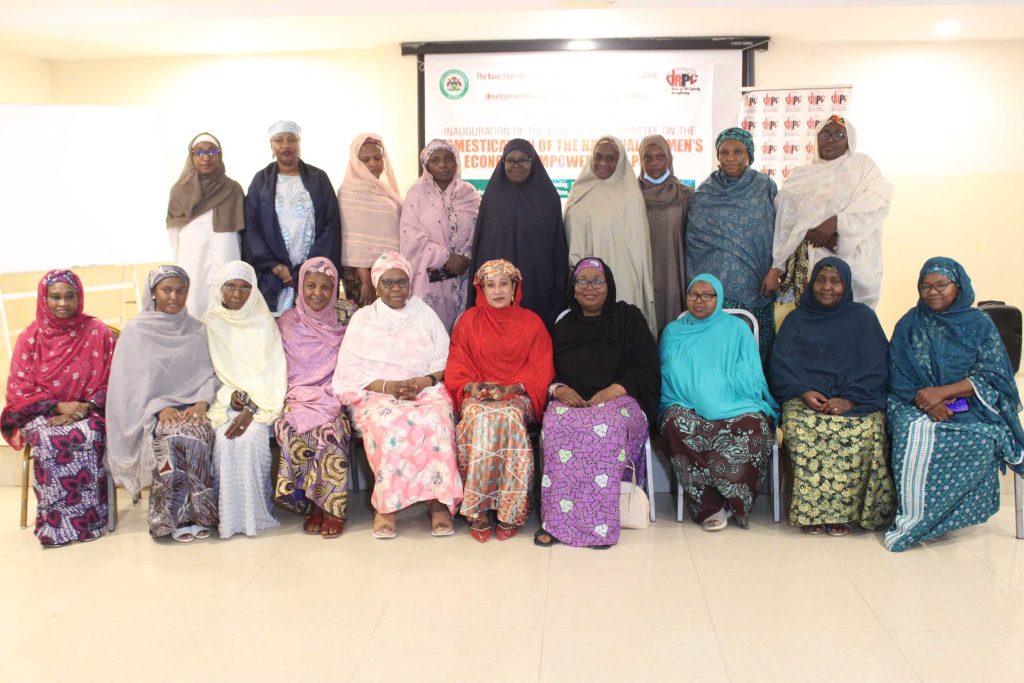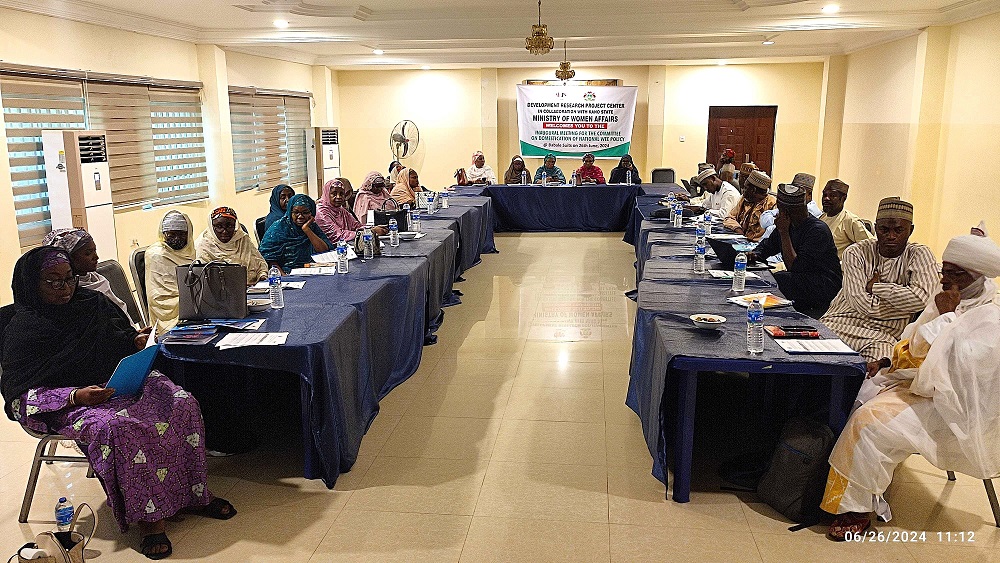Kano State Ministry of Women Affairs, Children and the Disabled, Hajiya Aisha Saji, inaugurated a 30-member committee charged with domesticating the National Women’s Economic Empowerment Policy in the state.
The committee comprising civil society groups, clergy, traditional rulers, market women, small and medium enterprises owners, and ministries, departments and agencies working on women’s economic empowerment is charged to deliver within 3 months
Welcome Address by the Permanent Secretary, Ministry of Women Affairs, Children and Disable
The Permanent Secretary of the Kano State Ministry of Women Affairs, Children, and Disabled Affairs welcomed the participants to the meeting, which aims to lay a solid foundation for the development of the Kano State Policy on Women Economic Empowerment. She noted that she is optimistic that the outcome of this engagement will be fruitful and worthy of emulation across the nation, helping to address the barriers preventing women from accessing economic opportunities.
The PS commended the dRPC for supporting the Kano State MWACD in the domestication of the National WEE policy for Kano State, which aligns with the current administration’s blueprint. She added that the state government prioritizes women by making significant budgetary allocations targeting vulnerable women in Kano State. These funds are used to conduct a series of empowerment activities. During the International Women’s Day celebration, 1,028 women were empowered, and 2,000 PWDs, disaggregated by gender, received support. Additionally, a monthly empowerment program for 5,200 women beneficiaries commenced in May 2024 and will be sustained throughout the current administration’s tenure. Each woman received N50,000 in cash.
The PS expressed her sincere appreciation to all the participants who were able to attend this meeting despite the short notice and tight schedules. She prayed for guidance to actualize our dream: a dream of elevating the status of women, improving the well-being of our dear children by empowering mothers, and changing the narrative of women in terms of economic opportunities.
Objectives of the Meeting by Director Planning Research and Statistics of the Kano State Ministry of Women Affairs, Children and Disable
The Director represented by Mallam Zubairu A. Zubairu the Principal Social Welfare Officer Informed the participants the main objective of the meeting is to inaugurate the committee that will be charged with the responsibility of reviewing the National Policy on WEE to domesticate it in Kano State.
Overview of dRPC’s Work on WEE by Umar Ahmad Umar, Senior Program Associate
Umar Ahmad Umar began by giving a brief introduction to the Development Research and Projects Center (dRPC). He mentioned that dRPC is a registered nonprofit organization formed in 1993 by 10 development researchers and activists from public universities in Nigeria. Its mission is to generate knowledge and action on inclusive, localised, and transformative development policies and humanitarian responses.
The dRPC aims to achieve this by strengthening the capacity of civil society organisations and change-makers and fostering a collaborative environment that enables them to engage with the government at all levels.
Umar then highlighted dRPC’s focus areas in economic development, Livelihoods, and Women’s economic empowerment (WEE). The activities are organised into five themes: microeconomic and policy research, budget analysis, policy analysis, and program evaluation. Additionally, dRPC maps and identifies women’s economic collectives and cooperative associations for engagement, enhancing their organisational and technical capacities.
He listed some of dRPC’s WEE interventions and the achievements recorded over the years, including:
- Mapping and landscaping to identify high-performing WECs.
- Mapping and landscaping women’s economic leadership institutions and policies and enabling donor-funded projects.
- Technical capacity building of WECs to conduct evidence-driven advocacy.
- Supporting WECs in advocating for women’s roles in economic policymaking.
- Signing and conducting high-level convenings on women in economic development.
- Support WECs in being active and leading members of government WEE platforms.
- dRPC’s membership on the high-level National WEE Policy-Making Committee.
NEXT STEPS
The next activity is coming up next week with the convening of a statewide citizens’ engagement workshop to broaden the participation of stakeholders in the domestication process



